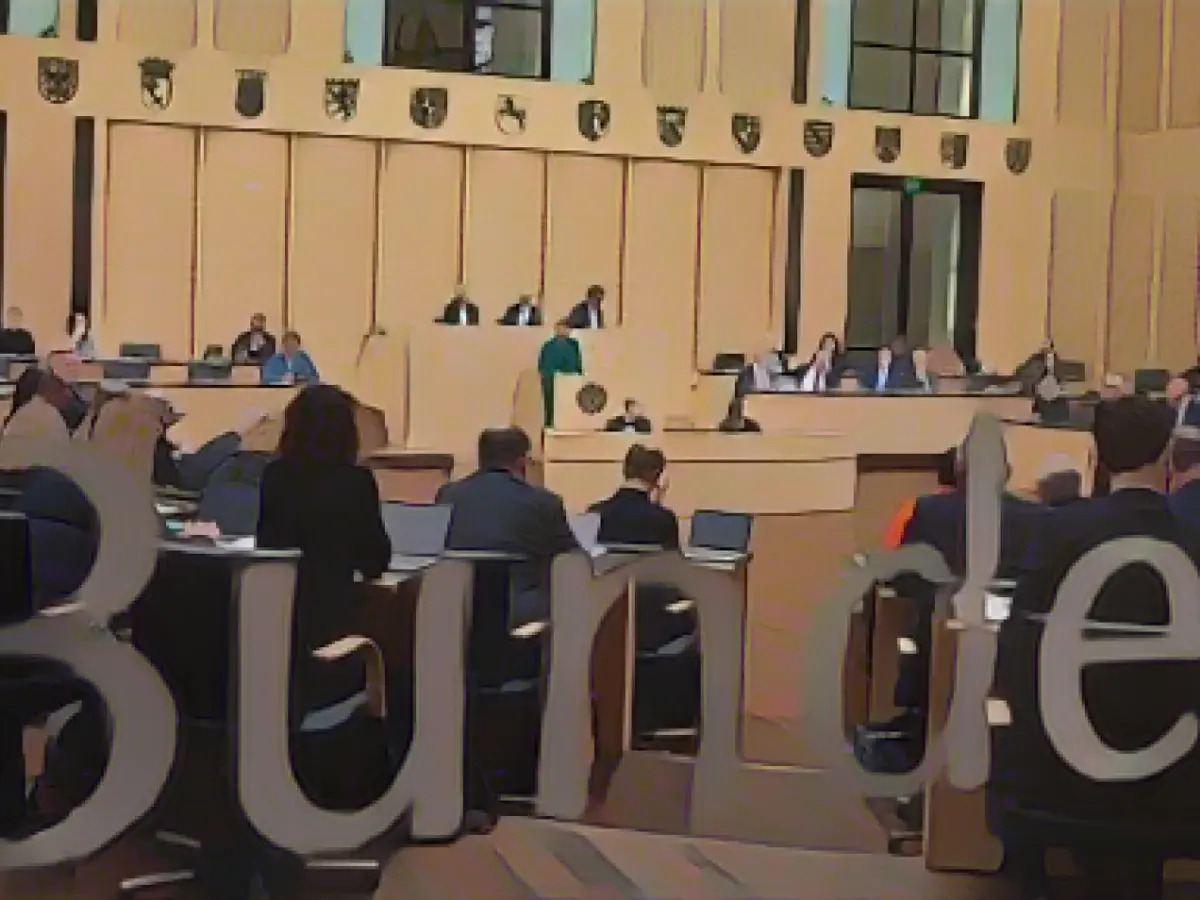Western Balkan states - Federal Council calls for EU enlargement
The Federal Council has backed the EU's accession negotiations with Ukraine, the Republic of Moldova and the Western Balkan states. "In view of global developments, enlargement is in the European Union's own geopolitical interests," it said in a statement.
"History shows that previous enlargements have made the European Union stronger," said Bremen's head of government Andreas Bovenschulte (SPD). Even if the focus is currently on Ukraine, the countries of the Western Balkans, some of which have been seeking admission for 20 years, should not be forgotten. The Western Balkan states include Serbia, Montenegro and North Macedonia.
Hesse's Federal and European Affairs Minister Lucia Puttrich(CDU) emphasized that the aim was to reach out to millions of people in Eastern and South-Eastern Europe. EU accession could no longer be justified solely on economic grounds.
"It is accession to a family of values. A family that promises security, prosperity and peace." However, there can be no special conditions for the candidate countries; they must fulfill the requirements for admission. It is the responsibility of the candidates to "kick-start the reform turbo now", said North Rhine-Westphalia's Federal and European Affairs Minister Nathanael Liminiski (CDU).
Moldova and Georgia as safe countries of origin
The Bundesrat also approved the classification of Moldova and Georgia as safe countries of origin. The Bundestag's bill achieved the necessary majority in the state chamber. The move is intended to limit the rising number of asylum seekers. The recognition rate for asylum seekers from the two former Soviet republics was less than 0.1 percent in the first half of the year.
Federal Interior Minister Nancy Faeser (SPD) will travel to the Georgian capital Tbilisi next Monday. According to a spokesperson for her ministry in Berlin, one of the topics of her visit will be a migration agreement. It is intended to facilitate deportations to Georgia and simplify the entry of Georgians to Germany for employment purposes.
Safe countries of origin are those where it is assumed that there is generally no persecution or inhuman or degrading treatment and the foreigner concerned is therefore not at risk of serious harm in their home country. This makes it easier to reject an asylum application. Furthermore, an asylum application does not have a suspensive effect.
This means that those affected can take legal action in court against a negative decision by the Federal Office for Migration and Refugees, but must then await the outcome of the proceedings abroad. So far, this applies to the countries of the European Union as well as Ghana, Senegal, Bosnia and Herzegovina, Serbia, North Macedonia, Albania, Kosovo and Montenegro.
Thuringia's Minister President, Bodo Ramelow, criticized the expansion of the list in detail and explained why he would not agree to it. Designating more and more countries as safe countries of origin was "unfortunately not a sensible approach" that could be maintained in the long term, said the Left Party politician. It would be more important to get countries such as Morocco, Tunisia and Algeria to cooperate better in identifying and taking back their citizens who are obliged to leave the country.
Although the majority of the Greens do not believe in the instrument of safe countries of origin, they have shown themselves willing to compromise this time - also because it is possible for those from Moldova and Georgia who are actually being persecuted to enter Germany due to visa-free travel.
Read also:
- Year of climate records: extreme is the new normal
- Precautionary arrests show Islamist terror threat
- UN vote urges Israel to ceasefire
- SPD rules out budget resolution before the end of the year
- Despite focusing on Ukraine, Andreas Bovenschulte (SPD), the head of government in Bremen, emphasized the importance of not ignoring the Western Balkan states, such as Serbia and Montenegro, which have been seeking EU admission for two decades.
- The Federal Council, composed of representatives from all 16 German states, including Bremen's Bovenschulte, supports EU enlargement with Ukraine, the Republic of Moldova, and the Western Balkan states, considering it a geopolitical interest for the European Union (EU).
- In the Western Balkans, North Macedonia is also part of the states seeking EU accession, and the German Federal Government believes that enlargement has historically strengthened the EU.
- German Federal and European Affairs Minister Lucia Puttrich (CDU) shares this view, stating that EU accession is not just about economic benefits but extends to security, prosperity, and peace for millions of people in Eastern and South-Eastern Europe.
- In the scope of EU accession negotiation, Moldova and Georgia are also involved, with the Bundesrat, the German Federal Council's upper house, approving their classification as safe countries of origin to limit the rising number of asylum seekers.
- The German Federal Interior Minister, Nancy Faeser (SPD), plans to travel to Tbilisi, the Georgian capital, to discuss a migration agreement aimed at facilitating deportations to Georgia and simplifying the entry of Georgians to Germany for work purposes.
- Among the countries now recognized as safe countries of origin are not only EU members but also Bosnia and Herzegovina, Serbia, North Macedonia, Albania, Kosovo, and Montenegro in the Western Balkans.
- Thuringia's Minister President, Bodo Ramelow, criticizes the expansion of the safe countries of origin list, suggesting improved cooperation with Morocco, Tunisia, and Algeria in identifying and taking back their nationals.
- Andreas Bovenschulte, the CDU-aligned Minister-President of Bremen, and Lucia Puttrich (CDU), the German Federal and European Affairs Minister, are part of the Christian Democratic Union (CDU), the main center-right political party in Germany and a key supporter of EU expansion.
- The Western Balkans, a region encompassing countries like Serbia, Montenegro, and North Macedonia, is situated in the southeastern Europe, marking the intersection of the Balkan Peninsula and Europe's southeastern border with Asia.
Source: www.stern.de








